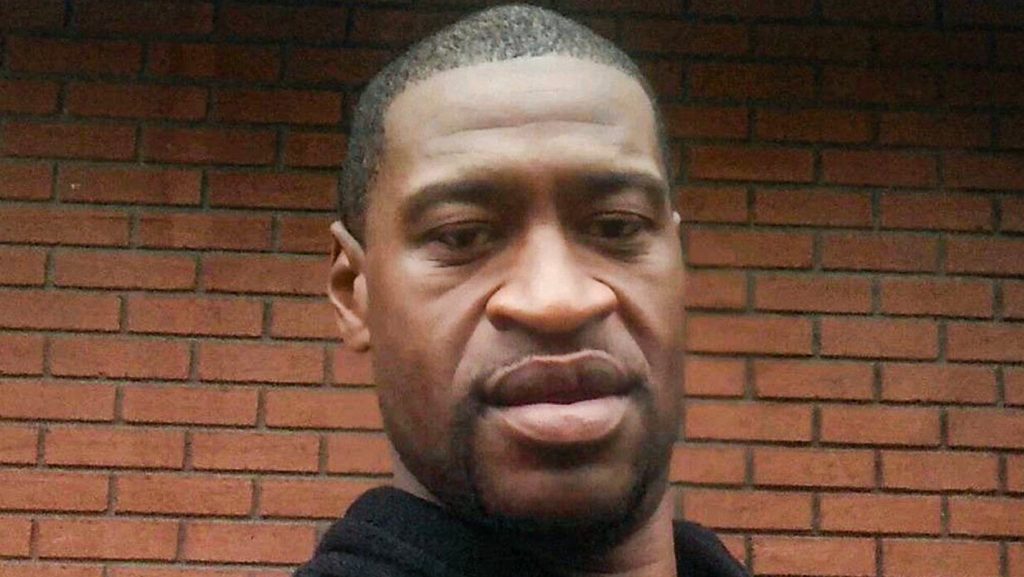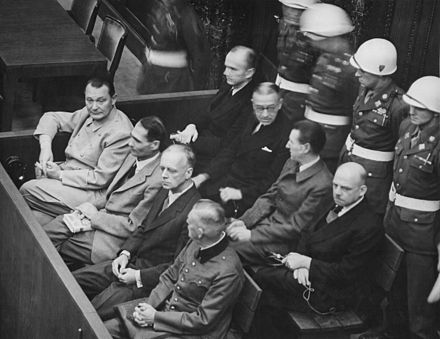202. Some Uses of Philosophy in the Wake of George Floyd’s Murder, Part 1: Natural Law Theory

On May 25, 2020, George Floyd, a 46-year-old Black man, died after Derek Chauvin, a white police officer, knelt on his neck for nine minutes and twenty nine seconds while he was lying face down handcuffed on the street. His death, and many other horrifying acts of social injustice both before and in the wake of his passing, have rightly led to international moral outrage and plenty of peaceful protests in the name of justice. The hope is that, more than ever before, these protests calling for justice, legal reform, political change, education, solidarity, and so on will substantially change the world for the better. Many of these efforts are already working as the daily news headlines show. Indeed, a Black Lives Matter rally in my own town has already made an impressive difference.
In the midst of all this action it may seem that philosophy – the activity of asking, and attempting to give imaginative and well-argued answers to, general and fundamental questions in order to gain wisdom – might be too abstract for the times at hand (for my post on the nature of philosophy, go here). But I think it is crucial to think philosophically about the issues that are unfolding since how we think informs our action and vice versa. One way to do this is to turn to the branch of philosophy called ethics. Ethics is not, in philosophy at least, synonymous with a set of customs, rules, commandments, or morals. It is essentially an activity of using reason to investigate our moral lives. This investigation usually involves formulating theories that (1) define our general and fundamental moral terms such as right and wrong (when it comes to actions) and good and bad (when it comes to the things or people we value) and (2) offer principles or rules of thumb which can then be applied to help us make well-argued judgments about specific moral issues (for a more substantial overview of ethics in philosophy, go here). In this post I will focus on one ethical theory, natural law theory, and show how it was employed to fight social injustice in the past, how it relevant to the death of George Floyd, and how it can help guide future reform.
Natural Law Theory
The origins of natural law theory can be traced back to ancient philosophers such as Heraclitus, Plato, Aristotle, Marcus Aurelius, and Cicero who employed ideas central to it. It was then developed by medieval thinkers such as Tertullian, Justinian, and St. Augustine. But the first comprehensive formulation of the theory appears in the writings of the medieval philosopher St. Thomas Aquinas. Natural law theory was then subsequently developed over the centuries in various directions, many theistic, some more secular in nature. Figures as diverse as Moses Maimonides, Francisco Suarez, Thomas Hobbes, Hugo Grotius, and John Locke made substantial philosophical contributions to its development. And the tradition continues to thrive in contemporary philosophy, political action, law, and religion.
The details of this diverse history are complex. But the basic ideas are straightforward and powerful. According to most versions of natural law theory, we begin by recognizing certain good potentials of human nature (to be rational, social, loving, friendly, creative, free, responsible, kind, etc.). This recognition can come about just using our reason—we don’t need revelation from God or any mysterious capacities or talents. We then judge actions to be right if they facilitate the actualization of this potential and wrong if they thwart it. Action can then be both guided and judged by articulating natural moral laws that prescribe how we should act rather than just describe how we do act. These laws, being grounded in our shared humanity, are universal (they would apply everywhere at all times), objective (not only a matter of personal or cultural opinion), and intelligible (capable of being rationally understood either immediately or after careful consideration). Once we have natural laws we can use them to justify natural rights. Natural rights will be those things that are essential to us if we are to realize our good natural potentials. Natural rights, just like natural laws, are not contingent on the decisions of a particular society like civil rights are. Rather, they are inalienable and necessary if our natural potentials are to be actualized at all (if you want a more thorough overview of natural law theory, go here).
Before turning to some historical examples of the theory in reference to social injustice, let’s consider a plausible example to make things less abstract. Aristotle (322-384 BC) argued that to fully understand something it is necessary to understand its natural purpose or essential function (telos). In Book I of his Nicomachean Ethics, Aristotle argues that humankind’s natural purpose is reason. It is the one trait unique to us and definitive of our nature. But if reason is our defining characteristic—our essence—then our natural purpose, according to Aristotle, is to actualize this potential reason as much as possible in the form of moral and intellectual virtue. By doing so we can become fully actualized human beings and reach happiness or fulfillment (eudaimonia).
Now once this view of human nature is in place we can formulate the following natural moral law:
NML: We should all develop our rational capacities.
Again, according to natural law theory we begin by recognizing certain good potentials of human nature and then judge actions to be right if they facilitate the actualization of this potential. In this case, we have the recognition of a natural good we possess—the potential to reason—and then we have a moral prescription of right action based on that recognition. Far from being just a scientific description of what we in fact are—rational animals—it goes on to provide a moral prescription. This prescription can lead to concrete ways to guide our behavior and evaluate our motivations, the acts that follow from these motivations, and the consequences that follow from our acts. For example, we could argue that everyone should get educated and should have a right to education. After all, one of the bad consequences of not getting educated is that it prevents the realization of our rational nature. Moreover, any motive to prevent education would be bad and any act thwarting education would be wrong. Thus we could articulate a second natural moral law that includes a natural right:
NML: Everyone should get educated and should have a right to education.
We could also argue that people shouldn’t grow up in a totalitarian regime where dissent is crushed and propaganda replaces the truth. After all, such a society would be bad insofar as truth and free debate are integral to the development of reason. And we could argue that forms of abuse (child abuse, substance abuse, and so on) that impair the proper function of the brain are wrong as well.
Of course, there are plenty of other good capacities of human nature that we could discuss. For example, our capacities for life, liberty, the pursuit of happiness, friendship, love, creativity, aesthetic appreciation, humor, hope, wonder, sympathy, play, and justice could be our focus and we could formulate moral prescriptions based on them as well. Naturally, discussions of human nature and how it came about can be controversial. But advocates of natural law think such discussions can yield plenty of traits which can serve as an objective, universal, and intelligible foundation for moral inquiry.
Natural Law Theory, Social Injustice, and George Floyd
Throughout history there are examples of people appealing to this foundation in their efforts to criticize the unjust laws and practices of their time. For example, Charles Henry Langston (1817–1892), an American abolitionist and political activist, was one of a group of men who freed runaway slave John Price in 1858. The Underground Railroad hid Price in Oberlin and helped transport him to freedom in Canada. Eventually, Langston was tried and convicted. But he thought he was in the right insofar as he stood on a moral commitment deeper than the prevailing civil laws. Consider his final words at the Cuyahoga Courthouse, May 1859:
“I stand here to say that I will do all I can, for any man thus seized and help, though the inevitable penalty of six months imprisonment and one thousand dollars fine for each offense hangs over me! We have a common humanity. You would do so; your manhood would require it; and no matter what the laws might me, you would honor yourself for doing it; your friends would honor you for doing it; your children to all generations would honor you for doing it; and every good and honest man would say, you had done right!”

Charles Langston (1817-1892)
Here we see a common theme of natural law theory at work, namely, our common humanity. Martin Luther King, Jr. explicitly employed natural law theory to justify his position against segregation when according to the law his actions were wrong. Recall he ended up in the Birmingham jail because he was non-violently opposing segregation. As a result, he couldn’t appeal to the law to make his moral case. Rather, he used natural law theory to make a moral case in support of his actions. He argued that segregation is wrong because it thwarts human nature – it “distorts the soul” and “damages the personality” as he put it – by preventing both the segregated and the segregators from actualizing their natural social and rational potentials. Consider this excerpt from his “Letter from a Birmingham Jail” (April 16, 1963) in which he explicitly makes reference to natural law:
“I would agree with St. Augustine that “an unjust law is no law at all.” Now, what is the difference between the two? How does one determine whether a law is just or unjust? A just law is a man made code that squares with the moral law or the law of God. An unjust law is a code that is out of harmony with the moral law. To put it in the terms of St. Thomas Aquinas: An unjust law is a human law that is not rooted in eternal law and natural law. Any law that uplifts human personality is just. Any law that degrades human personality is unjust. All segregation statutes are unjust because segregation distorts the soul and damages the personality. It gives the segregator a false sense of superiority and the segregated a false sense of inferiority. Segregation, to use the terminology of the Jewish philosopher Martin Buber, substitutes an “I it” relationship for an “I thou” relationship and ends up relegating persons to the status of things. Hence segregation is not only politically, economically and sociologically unsound, it is morally wrong and sinful.”

King’s case makes it clear that, on the one hand, what is legal is not necessarily moral and, on the other hand, when the law fails us we must be prepared to argue in defense of the ideas that guide our actions. I explore King’s use of natural law theory in relation to racism in much more detail here.
Natural law theory’s justification of natural rights as grounded in our shared human nature played a crucial role in the decisive Nuremberg Trials as well. Barbara MacKinnon, in her book Ethics: Theory and Contemporary Issues (Cengage, 2015), explains:
“The Nuremberg trials were trials of Nazi war criminals held in Nuremberg, Germany, from 1945 to 1949. There were thirteen trials in all. In the first trial, Nazi leaders were found guilty of violating international law by starting an aggressive war…in other trials, defendants were accused of committing atrocities against civilians…The defense contended that the military personnel, judges, and doctors were only following orders from their superiors in the Nazi regime. However, the prosecution argued successfully that that even if the experimentation did not violate the defendant’s own laws, they were still “crimes against humanity.” The idea was that a law more basic than civil laws exists—a moral law—and these doctors and others should have known what this basic moral law required.” (134-135).

A photo from the Nuremberg Trials. “The main target of the prosecution was Hermann Göring (left), considered to be the most important surviving official in Nazi Germany.” (Wikipedia)
Natural theory also helped convict Nazi war criminal Adolf Eichmann who received the death penalty and was hanged on June 1, 1962. Without a philosophical account of natural rights, rights that are universal unlike civil rights, it appeared Eichmann would go free. After all, what he did was legal under the Third Reich and, once the war ended, he couldn’t be tried in a court of another country. But again, what is legal is not necessarily moral. So the prosecution was able to employ natural law theory to show how Eichmann, too, committed crimes against our shared humanity. Thus the clever lawyers who defended a Nazi who ordered the death of six million Jews were refuted and justice prevailed.

Adolf Eichmann facing Justice
We can generalize from these examples and see how, when it comes to other forms of social injustice such as sexism, human trafficking, health inequality, the exploitation of workers, and so on, natural rights to life, liberty, and the pursuit of happiness are disregarded and the natural potentials for reason, friendship, love, creativity, play, and so on are compromised or destroyed. And these examples allow us to see how the treatment of George Floyd was objectively immoral since Floyd’s natural rights were completely disregarded. Floyd, who was handcuffed and struggling to breathe, obviously posed no threat to Chauvin and the three other officers at his side. Yet Chauvin continued, for over nine minutes, to treat Floyd as a mere thing – an It rather than a Thou as both Buber and King would say – that deserved no consideration, no dialogue, and no respect. This treatment extinguished all his good natural potentials forever. Such a callous treatment reveals his actions to be more than simply immoral: for me they were evil in their sadistic, gratuitous, and horrific disregard of Floyd’s humanity.

Derek Chauvin murdering George Floyd
This horror can be accounted for by natural law theory. After all, if we all have a shared nature then, despite our various personal and cultural differences, we should see the evil of what happened, be disgusted by it, and take some steps to eradicate it (not unlike the claim that the Nazi war criminals found guilty at Nuremberg should have seen the Jews as humans and acted accordingly). And it may be that some who do not have this reaction have certain deficiencies of good natural capacities such as ignorance (lack of wisdom), cowardice (lack of courage), injustice (lack of fairness), and callous indifference (lack of sympathy).
Why Care about Theory?
Now, to those who see Floyd’s death as obviously unjust it may seem we have no need for all this theory. Indeed, the call to offer justifications might even seem offensive. But it is important to remember that there are also clever and concealed racists, often with fancy degrees and institutional affiliations, at all levels of society who will use sophisticated language, ideas, theories, laws, and even philosophy itself to prevent real, long-lasting reform in education, the prison system, the family, the media, the police, politics, and so on from taking place. Protests rightly invoke words like ‘rights’, ‘equality’, ‘liberty’, ‘freedom’, and so on; they also employ powerful slogans, songs, and chants. But such modes of expressions may not be enough in certain situations which require articulate speech and convincing arguments. The examples mentioned above – King’s peaceful protests, the prosecution of Nazi war crimes, and the global Black Lives Matter movement – all show how indispensable courageous action is to change. And we can’t overlook the importance of feeling for those who have experienced the evils of racism and other forms of oppression. Love, kindness, consideration, and various forms of solidarity and support must be included. But, as we have seen, there was a time when natural law theory played a role and without it we wouldn’t have established certain reforms such as the Geneva Conventions (see here) and the Civil Rights Act (see here). And I think that, as communities, states, and even countries begin legal reform in the wake of recent protests, this theory can be part of the complex dialogue as well. Unfortunately, we are seeing a predictable yet effective effort to politicize many protests in order to make them radical leftist movements to be countered by those on the right. But this strategy obscures what I think should be the non-political focus here: the natural rights of all humans. Having a theory like natural law that helps us justify those rights and connect them to various laws rationally grounded in our shared human nature may help us stay focused on the real issues and secure a better future.
I hope the ideas in this post, while not perfect or completely convincing, can help you and your community think hard about how to face injustice with body, heart, and mind. Feel free to share your thoughts, comments, criticisms, questions, examples, suggestions, and so on below. I discuss another way philosophy can help from an existential perspective in part two of this series here.

I have not started reading yet. But Thank You! As a former student, Im glad to know u are alive out there & I hope u & ur family will continue to be well
You are welcome! Thanks for your kind words Shen. I am grateful that my family and I are doing well. I trust the same goes for you.
Engaging thoughts. It allowed me to see how i could strengthen the contributions I have made to the conversation. And maybe, i might follow up in my own direction with a more supportive argument in my own context with supportive material. Appreciate ur views.
I am glad you found the post engaging (I just improved it a lot so you may want to re-read if you get a few minutes). Feel free to let me know how it goes applying and developing some of these ideas in your own context and in your own way. I will be getting another post up soon…
I appreciate the piece, but these are difficult topics for me to write about.Because I begin to reflect the vortex that it is, things that concave on itself, which this world seems to be sometimes.
Your class taught me that caring about theory is essential. As always, I will keep in touch. Thank you for a wonderful article. Sarah Rand
You’re welcome Sarah! Thanks for reading.
I need to read more of your work here. The sports center style reporting of media, and the negativity of social media, has my brain fried. I was a former student of yours and loved the passion that you displayed for philosophy. Revisiting key philosophic theories might just be my cure. Thank you.
Nice to hear from you Mark! I hope all is well with you in these tough times. I am glad you enjoyed the post. I recall our interesting conversations and how you always had good insights. I encourage you to keep reading philosophy!